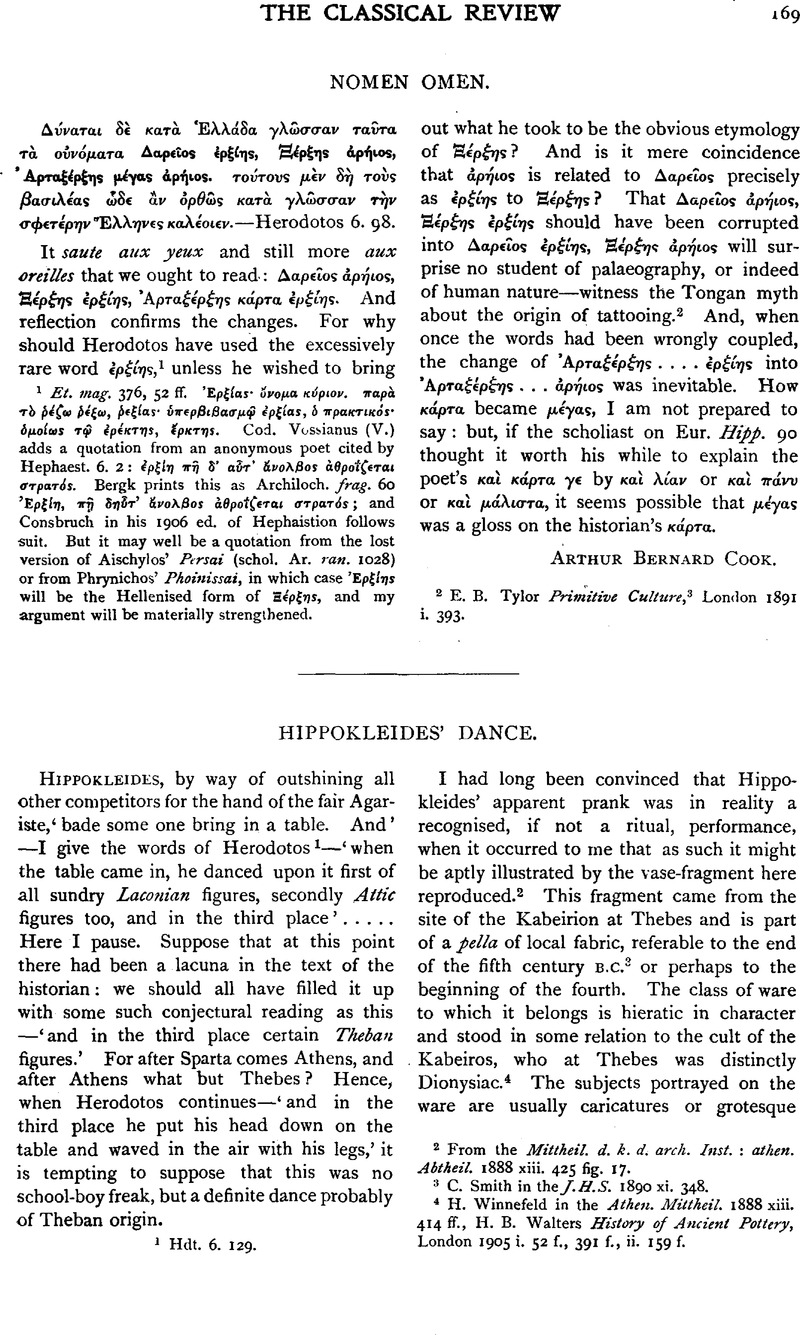No CrossRef data available.

1 Et. mag. 376, 52 ff. ![]() Cod. Vossianus (V.) adds a quotation from an anonymous poet cited by Hephaest. 6. 2:
Cod. Vossianus (V.) adds a quotation from an anonymous poet cited by Hephaest. 6. 2: ![]() . Bergk prints this as Archiloch. frag. 60
. Bergk prints this as Archiloch. frag. 60 ![]() ; and Consbruch in his 1906 ed. of Hephaistion follows suit. But it may well be a quotation from the lost version of Aischylos' Persai (schol. Ar. ran. 1028) or from Phrynichos' Phoinissai, in which case Ἑρξηίης will be the Hellenised form of Ξέρξης, and my argument will be materially strengthened.
; and Consbruch in his 1906 ed. of Hephaistion follows suit. But it may well be a quotation from the lost version of Aischylos' Persai (schol. Ar. ran. 1028) or from Phrynichos' Phoinissai, in which case Ἑρξηίης will be the Hellenised form of Ξέρξης, and my argument will be materially strengthened.
2 Tylor, E. B.Primitive Culture,3London 1891 i. 393.Google Scholar